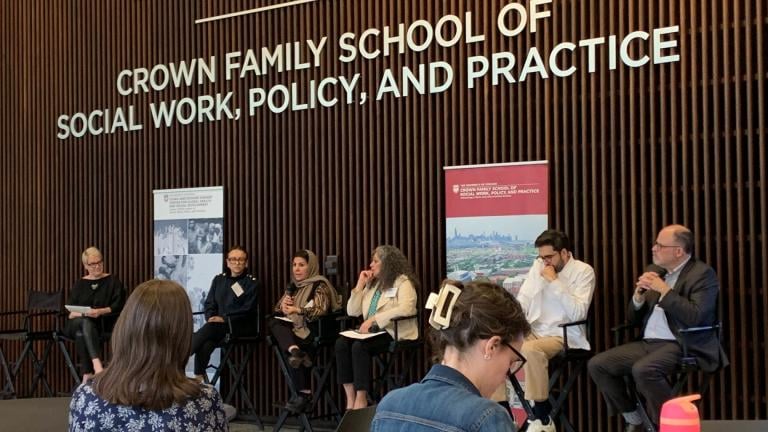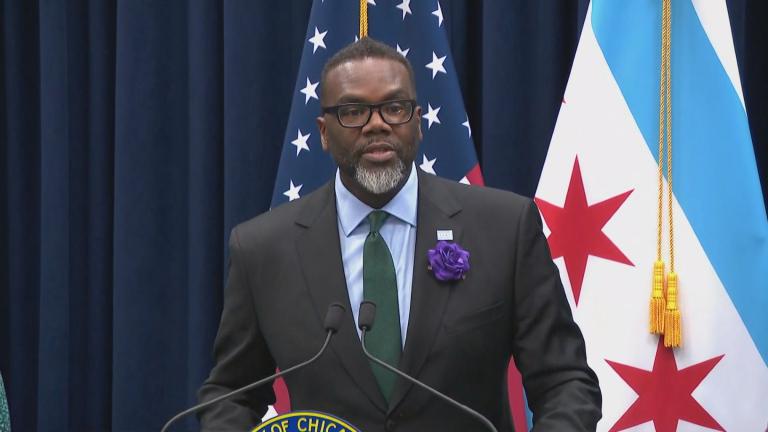A recent investigation by Injustice Watch found that the Chicago Police Department has prevented undocumented immigrants who are victims of crimes from qualifying to apply for temporary status.
Under state and federal law, immigrants who are victims and cooperate with law enforcement are eligible to receive what’s called a U-Visa. That gives them humanitarian relief to live in the country legally for up to three years. At the end of those three years, U-Visa recipients can apply for green card, and five years after that citizenship.
Injustice Watch reports that CPD is denying undocumented victims of crimes U-Visas at rates far higher than any other comparable city. Additionally, the bulk of the denials have come from officers who have significant misconduct issues.
The U-Visa was created to strengthen the relationship between police and immigrant communities. Certification by a law enforcement agency is only the first step in the application process, said Trisha Teofilo Olave, legal project manager at the Chicago-based National Immigrant Justice Center.
“The U-Visa certification is the first piece of that pie. A victim of a crime needs to obtain a certification signed by law enforcement that demonstrates they have been helpful, are being helpful, or are likely to be helpful in the investigation or prosecution of that crime,” Teofilo Olave said.
Since only 10,000 U-Visas are approved every year, United States Citizenship and Immigration Services is experiencing an extreme backlog.
“With each passing day, the waitlist gets longer, we are currently seeing approvals for applicants who applied back in 2016. So it’s going to be at least six years, more likely closer to 10 for people who are applying today,” Teofilo Olave said.
Carlos Ballesteros, who reported the story for Injustice Watch, closely followed Nodirjon Zakirjonovan, an undocumented immigrant from Uzbekistan who was the victim of a stabbing. Zakirjonovan cooperated with police but was denied a U-Visa.
“As he tried to get this certification, he kept running into these denials. He was denied actually four times which is pretty substantial – definitely the most denials that I saw from one case,” Ballesteros said.
CPD asked Zakirjonovan to prove his identity, which he did by sending proper documentation. A detective tried contacting him but he did not answer. Zakirjonovan provided a sworn affidavit stating that he was willing to help with the investigation.
He was then told to contact detectives directly to reopen the case, which he did and the case was reopened. The final denial, as Ballesteros relays, suggests that Zakirjonovan’s information was not credible.
CPD does not keep any extensive records on U-Visas, as Ballesteros shared in his original reporting, but with the information he gathered, it is reported that CPD denied U-Visa certifications at more than twice the rate as major cities like Los Angeles and New York City, even while having a smaller immigrant population by comparison.
“This is the confluence of three things that is Chicago’s identity at this time and reflects its current challenges and its future,” said Joe Ferguson, founder and executive director of the organization (re)Chicago and the former city of Chicago Inspector General. “One, this is a sanctuary city and we actually invite people to come to this city. We have a welcoming city ordinance. A lot of things are actually there to support them. But they are a vulnerable population as they come.”
Then they are victims of crime, that much more vulnerable and they attempt to cooperate. But the crime, that’s the second thing. This is a time of very high crime in the city,” he added
“And the third has to do with competency of the administration of CPD and the disciplinary system that actually in this situation, has people with problematic disciplinary backgrounds actually overseeing this program that has a huge impact on the lives of individuals,” Ferguson said.
In Ballesteros’ reporting, Brandon Ternand and John Poulos, two police sergeants with significant misconduct issues, have made up the bulk of those denied certifications.
“Both sergeants were up for being terminated in 2018 but both were cleared despite the fact that investigators raised serious questions about their credibility as police officers,” Ballesteros said.
Poulos shot and killed two Black men, Rickey Rozelle and Kajuan Raye, in separate incidents. Ternand shot and killed Dakota Bright. Despite a significant history of misconduct, both CPD sergeants were kept on the force, tasked with desk duty as U-Visa certifiers.
The Chicago Police Department was invited to join “Chicago Tonight” but declined, sending the following statement: “The Chicago Police Department is committed to supporting and advocating for victims of crimes, as well as conducting thorough investigations to hold the perpetrators responsible. Additionally, we recognize the importance of connecting our most vulnerable victims with appropriate services and resources. CPD will continue working to ensure the U Visa certification process is in accordance with the federal guidelines.”








